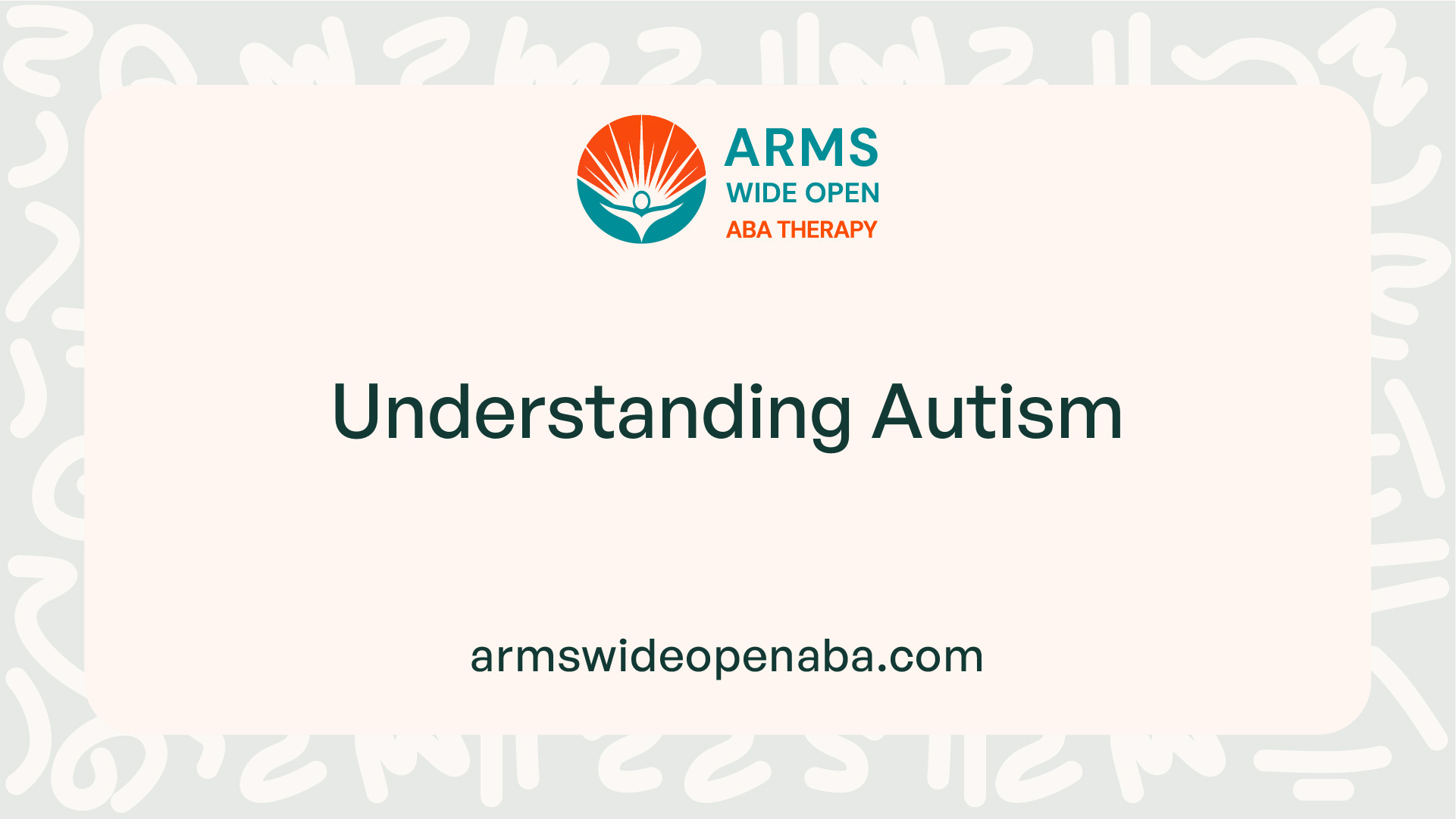Autism Parental Guidance
Discover effective autism parental guidance strategies to support your child's journey with insights on self-care and celebrating milestones.


Understanding Autism
When delving into the realm of autism, it is essential to gain a foundational understanding of Autism Spectrum Disorder (ASD), the challenges faced by individuals on the spectrum, and the pivotal role that parental guidance plays in the lives of individuals with autism.
Brief Overview of Autism Spectrum Disorder
Autism Spectrum Disorder (ASD) is a complex neurodevelopmental condition that impacts social interaction, communication skills, and behavior. Individuals with autism often display a wide range of strengths and challenges, leading to the term "spectrum." The characteristics of ASD can vary significantly from person to person, emphasizing the importance of individualized support and guidance.
Challenges Faced by Individuals with Autism
Individuals with autism encounter a myriad of challenges in their daily lives, ranging from difficulties in social interactions and communication to sensory sensitivities and behavioral differences. These challenges can present obstacles in academic settings, social situations, and daily routines, underscoring the need for tailored support and understanding.
Challenges Faced by Individuals with Autism
Impaired social skills
Communication barriers
Sensory sensitivities
Repetitive behaviors
Difficulty with transitions
Importance of Parental Guidance
Parental guidance plays a pivotal role in supporting individuals with autism as they navigate the complexities of the condition. Parents serve as advocates, caregivers, and pillars of support for their children with autism, helping them access necessary resources, navigate challenging situations, and foster personal growth and development.
The foundation of understanding autism, recognizing the challenges that individuals with autism face, and acknowledging the critical role of parental guidance sets the stage for effective support, advocacy, and empowerment within the autism community. By fostering a deeper understanding and providing unwavering support, parents can profoundly impact the lives of individuals with autism, helping them thrive and reach their fullest potential.

Role of Parents
When it comes to supporting a child with autism, parents play a pivotal role in providing the necessary guidance and care. This section delves into the key responsibilities that parents have in supporting their child's development and well-being, focusing on providing emotional support and advocating for their child's needs.
Providing Emotional Support
One of the essential roles of parents of children with autism is to provide unwavering emotional support. Children on the autism spectrum may face challenges in expressing themselves, understanding emotions, and social interactions. As parents, offering a safe and nurturing environment where their child feels understood and accepted is crucial.
Emotional Support Strategies
Listen actively and empathetically to your child's feelings.
Validate their emotions and experiences.
Create routines and predictable environments to help regulate emotions.
Advocating for Their Child's Needs
Advocacy is another vital aspect of parental guidance for children with autism. Parents are often their child's strongest advocates, ensuring that their needs are met across various settings, including schools, healthcare facilities, and the community. Advocating for appropriate educational accommodations, therapies, and support services can significantly impact a child's development and quality of life.
Advocacy Tips
Learn about your child's rights and available resources.
Collaborate with teachers, therapists, and other professionals to create a tailored support plan.
Stay informed and proactive in seeking out the best solutions for your child.
By providing emotional support and advocating for their child's needs, parents of children with autism can create a nurturing and empowering environment that promotes their child's growth, development, and well-being. It is through these critical roles that parents can positively impact their child's journey and foster a sense of security and belonging.

Strategies for Effective Parental Guidance
When it comes to providing guidance to children with autism, parents play a crucial role in fostering their development and well-being. Implementing effective strategies can greatly benefit both the child and the family as a whole. Here are three key strategies for parents to consider: creating a structured environment, utilizing communication techniques, and encouraging social interaction.
Creating a Structured Environment
One of the fundamental strategies for parents of children with autism is to establish and maintain a structured environment. Structure provides predictability and helps children with autism feel more secure and organized. By creating a consistent routine and setting clear expectations, parents can help their child navigate daily activities more smoothly.

Communication Techniques
Effective communication is essential for parents of children with autism. Since individuals with autism may have challenges in verbal and non-verbal communication, parents can explore alternative communication methods to support their child's expressive and receptive skills. Utilizing visual supports, gestures, and augmentative communication devices can enhance communication interactions.

Encouraging Social Interaction
Social interaction is an integral part of a child's development, including those with autism. Parents can encourage social engagement by creating opportunities for their child to interact with peers, siblings, and family members. Structured playdates, social stories, and group activities can help children with autism practice social skills in a supportive environment.

By focusing on creating a structured environment, utilizing effective communication techniques, and encouraging social interaction, parents can provide valuable guidance and support to their child with autism. These strategies can contribute to the overall well-being and development of the child, enhancing their communication skills, behavior management, and social interactions.

Building a Supportive Network
In the journey of understanding and navigating autism parental guidance, building a supportive network is essential for parents to feel connected, empowered, and well-informed. By connecting with other parents who are facing similar challenges and seeking professional guidance and resources, parents can gain valuable insights and support.
Connecting with Other Parents
Engaging with other parents of children with autism can provide a sense of community and understanding. Sharing experiences, tips, and strategies with fellow parents can offer much-needed emotional support and reassurance. Building relationships with other parents creates a network of individuals who can empathize with the unique challenges and triumphs that come with parenting a child on the autism spectrum.
Benefits of Connecting with Other Parents
Emotional Support
Shared Experiences
Exchange of Tips and Strategies
Seeking Professional Guidance and Resources
In addition to connecting with peers, seeking professional guidance and utilizing available resources is key to enhancing parental guidance for children with autism. Professionals, such as therapists, psychologists, and educators specializing in autism, can offer tailored advice and interventions to support both the child and the family.
Types of Professional Guidance and Resources
Therapy Services
Parent Training Programs
Educational Workshops
By actively engaging with both the parent community and professionals in the field, parents can access a wealth of knowledge, support, and resources to guide them through the ups and downs of parenting a child with autism. This collaborative approach fosters a network of support that empowers parents to navigate their journey with strength, resilience, and confidence.

Self-Care for Parents
Parents of children with autism play a vital role in providing support and guidance. However, it's essential for these parents to prioritize self-care to effectively fulfill their responsibilities. This section highlights key aspects of self-care, including managing stress, balancing responsibilities, and knowing when to take breaks and seek help.
Managing Stress
Parenting a child with autism can be both rewarding and challenging, often leading to heightened levels of stress. It's crucial for parents to recognize the signs of stress and implement strategies to manage it effectively. By incorporating stress-reducing activities into their daily routine, such as mindfulness exercises, meditation, or engaging in hobbies, parents can better cope with the demands of caregiving.
Common Stress Management Techniques for Parents
Mindfulness Meditation
Deep Breathing Exercises
Physical Activities like Yoga or Walks
Seeking Support from Counseling or Support Groups
Balancing Responsibilities
Balancing the needs of a child with autism, familial duties, work commitments, and personal time can be overwhelming for parents. Establishing a structured daily routine and setting realistic expectations can help parents navigate their various responsibilities more efficiently. Prioritizing tasks, delegating when possible, and recognizing personal limits are essential for maintaining a healthy work-life balance.
Strategies for Balancing Responsibilities
Creating To-Do Lists
Setting Realistic Goals
Implementing Time Management Techniques
Communicating Needs with Family and Employers
Taking Breaks and Seeking Help
Parents of children with autism may feel hesitant to ask for help or take time for themselves due to feelings of guilt or the belief that they should handle everything independently. However, it's imperative for parents to recognize their own needs and limitations. Taking regular breaks, whether small moments of relaxation or engaging in self-care activities, can prevent burnout and improve overall well-being. Additionally, seeking support from family, friends, or professionals can provide valuable assistance and guidance.
Importance of Taking Breaks and Seeking Help
Preventing Burnout and Exhaustion
Enhancing Mental and Emotional Well-being
Building a Strong Support System
Accessing Resources for Guidance and Assistance
By prioritizing their own self-care needs, parents of children with autism can enhance their ability to provide effective guidance and support. It is essential for parents to recognize the importance of self-care as a means to cultivate their own well-being, resilience, and capacity to navigate the challenges and joys of raising a child with autism.

Celebrating Progress and Success
As parents navigate the journey of providing guidance to a child with autism, it's essential to acknowledge and celebrate both small victories and major milestones along the way. This not only fosters a positive environment but also encourages continuous growth and development. In this section, we will explore the importance of acknowledging small victories, creating a positive environment, and embracing opportunities for ongoing education and personal growth.
Acknowledging Small Victories
Celebrating the small achievements of a child with autism is incredibly significant. These victories can range from mastering a new skill to effectively communicating a need or preference. By recognizing and praising these accomplishments, parents can boost their child's self-esteem and motivation. Small victories serve as stepping stones towards larger goals and are indicators of progress and improvement.
Fostering a Positive Environment
Creating a positive and supportive atmosphere at home is crucial for the well-being of both the child with autism and the entire family. A positive environment promotes feelings of safety, acceptance, and encouragement. Parents can foster positivity by offering words of affirmation, expressing love and appreciation, and maintaining a routine that provides stability and predictability for their child. Positive reinforcement and a nurturing environment contribute to the emotional growth and development of a child with autism.
Continuing Education and Growth
As parents dedicate themselves to guiding their child with autism, it's essential to prioritize their own ongoing education and personal growth. This includes staying informed about the latest research, therapies, and interventions for autism spectrum disorder. By seeking out educational opportunities, workshops, and support groups, parents can enhance their understanding of autism and learn effective strategies for supporting their child's unique needs. Continued education not only benefits the child but also empowers parents to navigate challenges and advocate for their child with confidence.
Celebrating progress and success in the journey of parenting a child with autism involves recognizing achievements, nurturing a positive environment, and embracing opportunities for learning and growth. By acknowledging the milestones, fostering a supportive atmosphere, and prioritizing ongoing education, parents can create a nurturing and empowering environment that nurtures the well-being and development of their child with autism.
Sources
https://www.autismspeaks.org/tool-kit/parents-guide-autism
https://www.goldstarrehab.com/parent-resources/autism-parental-guidance
https://childmind.org/guide/parents-guide-to-autism/
Similar articles
We’re here to help you

Our team is here to assist you in this process. Contact us for any assistance.
it’s easy to apply
We Accept Most Insurances
Our in-network insurance partnerships make ABA therapy more accessible to families throughout our service areas.







Our Insurance Process
We'll request your insurance details to help us verify your plan's coverage for ABA therapy. Once we've received this information, we'll walk you through your benefits, including copayments, deductibles and out-of-pocket maximums, so you know what to expect in advance.
Our team will then handle the preauthorization and all the necessary paperwork.
.svg)





















.jpeg)


































.jpeg)




.jpeg)







.jpeg)











.jpeg)
















